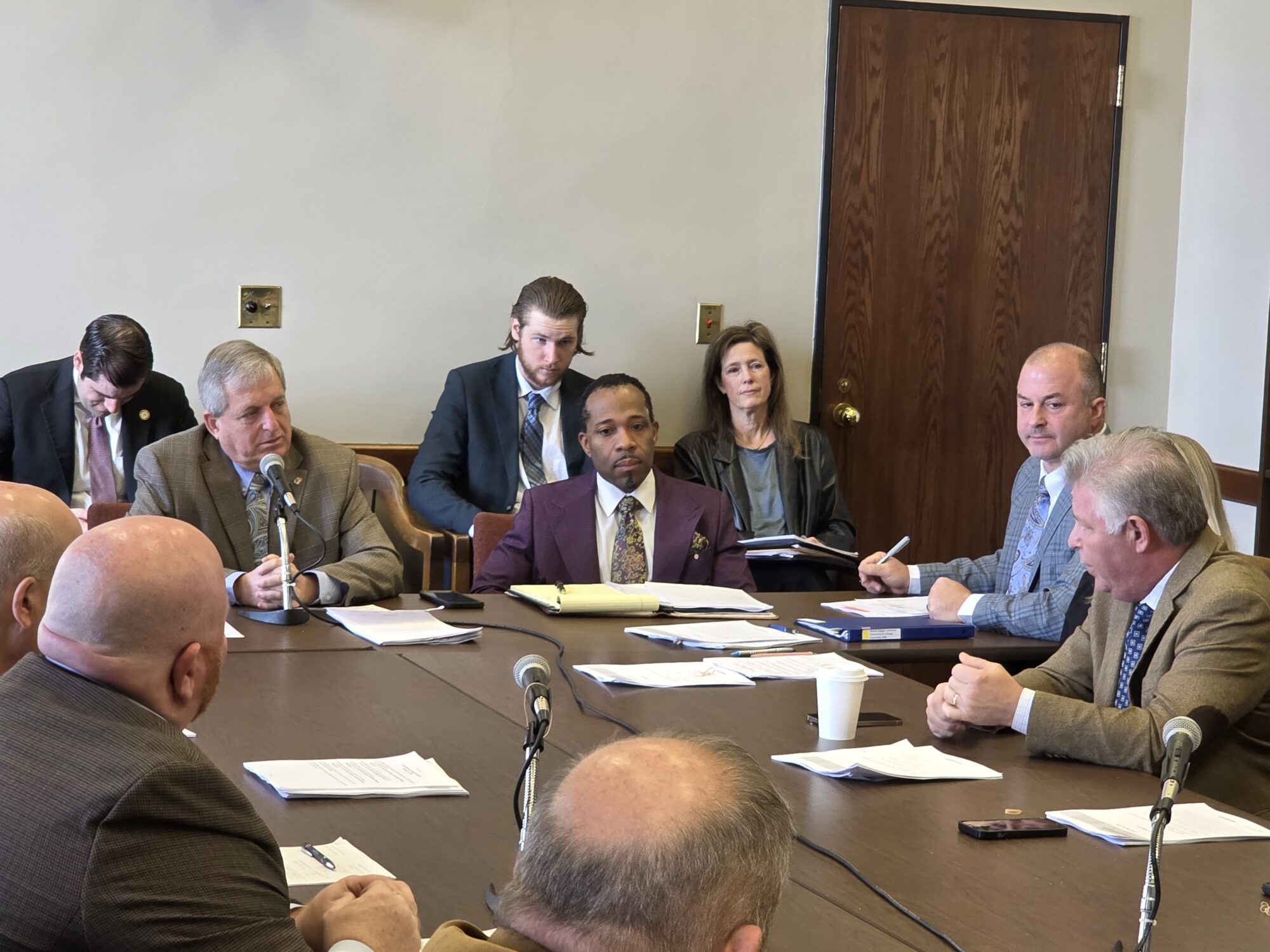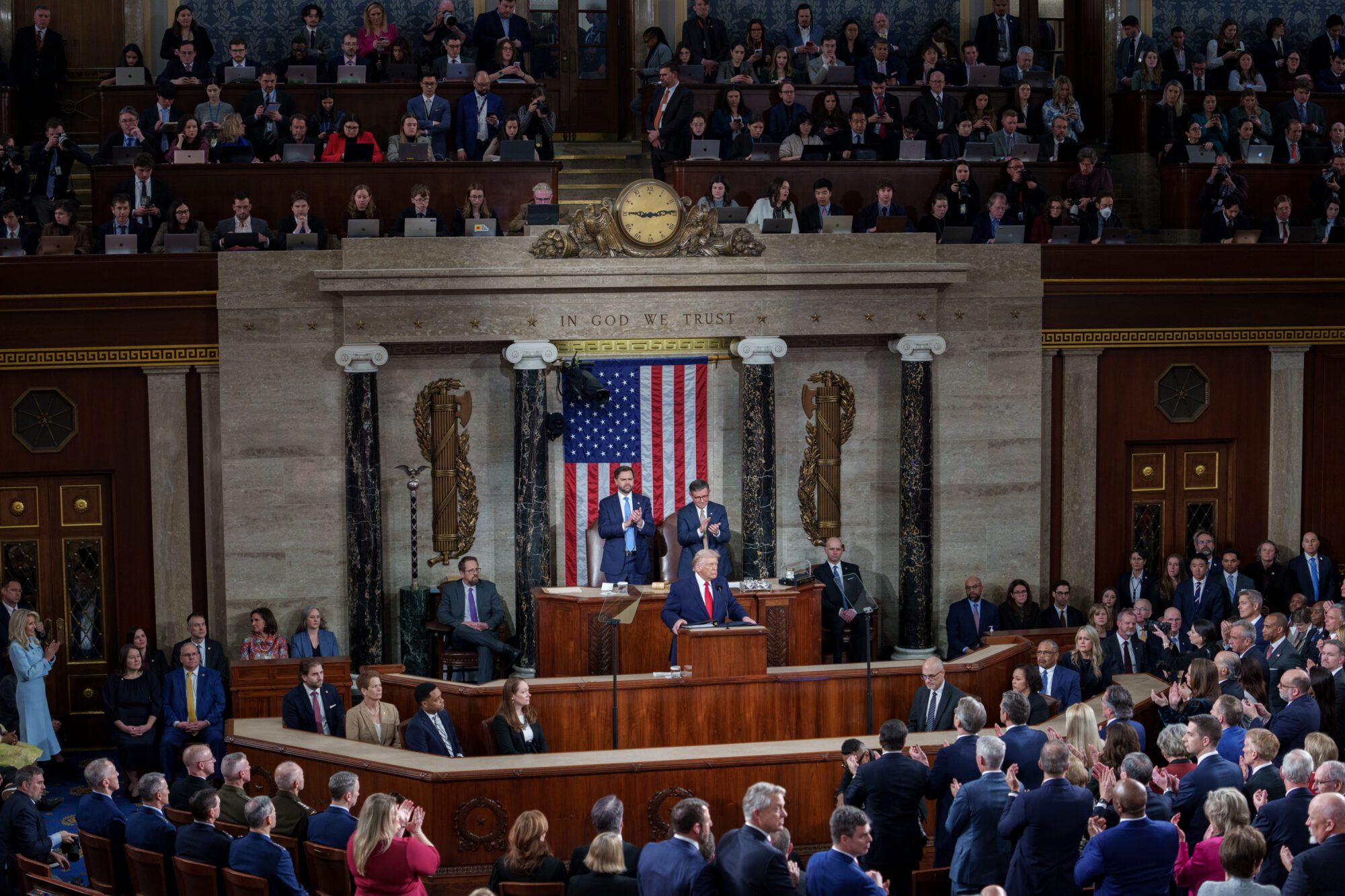
- While many Mississippians do receive Medicaid coverage, not all are familiar with what the program is, how it functions, how it’s funded and who it serves.
Medicaid and the program’s possible expansion have been in the news for months. While many Mississippians receive the coverage, not everyone is familiar with what Medicaid is, how it functions, how it’s funded and who it serves.
This year, lawmakers will tackle the Medicaid Technical Amendments bill during the 2024 session. The legislation outlines the operations of the Mississippi Division of Medicaid for a three-year time period. Changes to the program could come through this legislation.
Here is an overview of Medicaid in Mississippi.
What is Medicaid?
Medicaid is a program that provides health coverage for eligible, low-income individuals. Those groups can include children, low-income families, pregnant women, the elderly and disabled. Medicaid is funded in part by the federal government and a portion of state monies that come from general funds, special funds and other resources.
To determine the amount of funding provided by the federal government, the Federal Medical Assistance Percentage (FMAP) is used. That number is calculated and published yearly in accordance with the Social Security Act. The FMAP period runs from October 1 until September 30 of the next year.
Recent numbers for Mississippi indicate the federal government pays 77.27% of the program’s costs, leaving the remainder to the state. Traditionally the state has had one of the higher FMAP percentages because it is amongst the poorest states.
Those who apply and are deemed eligible for Medicaid do not receive direct payments for their health benefits. Instead, enrolled and qualified providers are reimbursed for health services rendered.
Medicaid is not to be confused with Medicare. Medicare is a federal insurance program focused on health coverage for people 65 and older as well as younger disabled and dialysis patients. Income is not a factor in eligibility.
History of Medicaid
Medicaid was created in 1965 for use throughout the United States. The focus was to provide healthcare for low-income populations. Mississippi opted into the program in 1969 after authorization by the state Legislature. It currently functions as the nation’s largest insurance company and the biggest budget item for Mississippi.
Throughout the 1970’s Medicaid in Mississippi was under the purview of the Legislature. It was not until the 1980’s that the Division of Medicaid was created. The Division is housed within the Office of the Governor and is run jointly through state and federal dollars.
The national Medicaid program currently serves over 72.5 million Americans. Roughly 27% of Mississippians participate in the plan.
In 2010, the adoption of the Affordable Care Act (ACA) on the federal level gave states the opportunity to expand Medicaid to cover most, if not all, low-income individuals under 65. Mississippi is one of 10 states that has not expanded Medicaid, which would allow individuals up to 138% of the federal poverty level to become eligible for coverage. The ACA also extended eligibility for children to 133% of the FPL in every state, giving those states the ability to go below that number.
Experts estimate if Mississippi were to expand Medicaid, somewhere around 200,000 people could be added to the rolls. This number was referenced by Senator Kevin Blackwell, the Medicaid Committee Chairman in the Senate, in a recent hearing where Medicaid Director Drew Snyder was presenting the Division’s budget request.
Who does Medicaid cover?
States must provide Medicaid assistance to a baseline eligibility group defined by federal law. Individual states do have flexibility over whether to cover additional eligibility groups. Eligibility is determined by factors like family size, income, Federal Poverty Level (FPL). Currently the FPL is set at $31,200 for a family of four.
Eligible individuals in the state must also be a resident of Mississippi.
These eligibility determinations are based on MAGI, or Modified Adjusted Gross Income, and are used for most Medicaid programs. Programs that are non-MAGI include Supplemental Security Income (SSI), long-term institutional care, a Home and Community Based Services (HCBS) waiver, dual Medicare or Medicaid, and Kate Beckett Children.
As of January 2024 a total of 754,585 individuals were enrolled in Medicaid programs in Mississippi. Broken down, 385,172 were children (except those who qualify on disability), 78,882 aged, 168,584 blind or disabled, 96,876 adults, and 25,071 under family planning waivers.
This does not include the 46,764 who were enrolled in the Children’s Health Insurance Program, or CHIP. In total, 801,349 people are currently recipients of Medicaid and CHIP.
The Medicaid program covers one in seven adults over the age of 18 and one in two children. It also expands to one in four Medicare beneficiaries and three out of four nursing home residents. These numbers are expected to continue to drop as re-enrollment began following the end of COVID-era coverage policies.
In FY 2023, the application rate for Medicaid coverage was around 62% approved and 38% denied. According to the Division, that number is slightly elevated due to misunderstandings in renewals during last year’s unwinding process.
Eligibility guidelines differ based on the individual.
Below are the current parameters for certain populations:
- Working Disabled (WD) program
- Earnings limit is set at 250% of the FPL
- Individual (unmarried) $5,729 per month
- Couple, $7,695 per month
- Resource or asset limits are also set
- Aged, Blind, and Disabled in a nursing home
- Over 65, blind, disabled and placed in a nursing facility.
- Monthly income limit of $2,829 (before deductions)
- Resource limit at $4,000 per individual (these are assets that you own)
- Disabled Child Living at Home
- Under 19
- Requires hospital/nursing level of home care.
- Can receive safe care at home.
- No income or assets in excess of current long-term care standards
- Does not incur a cost to the program that exceeds payment of in-facility care
- Family Planning Waiver (Pregnant women and men)
- Family income no greater than 194% of FPL
- Ages 13-44
- Capable of reproducing
- No other heath insurance
- Cost Sharing Programs
- Medicare Part A/B individuals with limited income
- Monthly income limit range passed on the groups (Qualified Medicare Beneficiaries, Specified Low-Income Medicare Beneficiaries, Qualifying Individual)
- No resource test
- Healthier Mississippi Waiver
- Not covered or entitled to Medicare
- 65 or older, if younger must have a qualifying disability
- Not pregnant
- Monthly income limit at 135% of FPL
Stakeholders in Medicaid include beneficiaries and their families, taxpayers, elected officials, federal policy makers and regulators, healthcare providers, the agency itself as well as advocates and contractors.
Federal law requires that there be periodic renewals and redeterminations of the Medicaid rolls. This means, Medicaid recipients are required to re-apply at the discretion of the federal government.
What are Medicaid Programs?
Medicaid offers multiple services depending on the type of individual they are working to serve. For children under 19 whose families make above the income threshold, they could be eligible for the Children’s Health Insurance Program (CHIP). This applies to families who make up to 209% of the FPL. Children can also be eligible for early and periodic screening programs, including scheduled vaccinations.
Individuals who require institutionalized long-term care, home and community based long term care services, mental health services, or special needs plans are often also eligible for Medicaid.
The Division of Medicaid utilizes a managed care program, Mississippi Coordinated Access Network (MississippiCAN) in order to obtain better healthcare outcomes by investing in improving the health and well-being of Medicaid beneficiaries. This is standard practice in more than half of states in the U.S. There are currently three contracted managed care companies who participate in MississippiCAN – Magnolia Health, Molina, and UnitedHealthcare.
As of January 2024, 425,966 individuals are enrolled in MississippiCAN programs, dispersed between the three managed care providers.
The CHIP program is administered by Molina and UnitedHealthcare.
Medicaid was traditionally provided through fee-for-service providers. Now, with managed care providers, the state pays them a fee for each person enrolled and in turn they pay providers for all Medicaid services rendered to a beneficiary.
According to the Division, two out of three people on Medicaid in Mississippi are enrolled in managed care.
As expansion conversations continue to echo under the Capitol dome, the Division of Medicaid has requested a significant increase of state funding for the upcoming 2025 Fiscal Year, at nearly $1 billion. This is a nine percent increase over their FY 2024 request. Director Snyder attributed the increase in a change of the federal match rate for medical expenses. The increase in cost is despite a reduction in the Medicaid rolls.
An expansion in Medicaid would increase the regular FMAP by five percent, but along with it, state support would rise. Snyder went on to add that if expansion were pursued, the state budget request could increase by up to $250 million annually.









